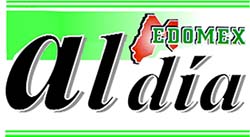- «Internet of Water» is marketed through AIoT4All, a Tec de Monterrey startup focused on developing IoT products with artificial intelligence.
- The interchangeable sensors can measure a wide range of parameters and variables in freshwater bodies.
- The project originated with the goal of monitoring Rio Grande de Santiago, a river in Jalisco, known for being the most polluted in Mexico.
- In the future, Machine Learning, Artificial Intelligence, and Advanced Control capabilities will be integrated.

Guadalajara, Jalisco, December 2024.- The Center for Innovation, Technological Development, and Applications in the Internet of Things (CIIoT) at Tec de Monterrey, Mexico’s top university in engineering and technology according to the QS World Ranking 2025, has developed «Internet of Water,» a technology platform based on IoT (Internet of Things) that monitors water quality in rivers, lakes, lagoons, and streams by measuring contaminant levels.
Investigations and projects carried out by the Tec de Monterrey’s CIIoT are highly relevant due to Mexico’s severe water pollution issues: 60% of potable water is contaminated. According to the National Network for Water Quality Measurement (RENAMECA), 59.1% of surface water bodies such as rivers, streams, lakes, and coastal areas present some level of pollution, while only 40.9% meet quality standards that ensure effective access to potable water.
The CIIoT has integrated into «Internet of Water» sensors specifically designed to measure various substances in water, making it a sophisticated monitoring system with a LoRa communication gateway that sends data to antennas for transmission to a database, solar panels that power low-energy lithium batteries, and buoys that keep the device afloat.
Currently, «Internet of Water» is marketed through AIoT4All, a Tec de Monterrey startup focused on developing IoT products with artificial intelligence. The university has contributed seed capital funding and provides research and operational spaces. The specialized team was developed with funds from ITESM and the Government of the State of Jalisco.
According to Alfredo Figarola, these developments are now at level 7 on the TRL scale (Technology Readiness Level), meaning that the technology has been tested in real-world environments and is ready for commercialization.
«This floating platform features sensors that measure various parameters to determine water quality, currently evaluating 25 parameters with eight different variables,» explained Alfredo Figarola, professor at Tec de Monterrey’s Guadalajara Campus and leader of the CIIoT. The sensors analyze parameters such as dissolved oxygen, turbidity, pH, temperature, dissolved solids, and conductivity, as well as pollutants like lead, cadmium, phosphates, and values such as chemical oxygen demand (COD) and biological oxygen demand (BOD), among many others.
The advanced platform design allows sensors to be swapped out according to the needs of the environment and the water body being analyzed, thus ensuring flexibility in the measurement of parameters and variables, the researcher commented.
The Origin of «Internet of Water»
The project that led to «Internet of Water» began as an initiative by the Government of the State of Jalisco to assess conditions in the Rio Grande de Santiago, declared in 2020 to be the most polluted river in the country. The government contacted Professor Figarola to develop a device that could automatically measure dissolved pollutants and provide objective information for remediation decisions.
The CIIoT team embarked on thorough research and designed a platform that monitors the river leveraging their expertise in IoT (Internet of Things) technologies. Once the first prototype was developed, proof-of-concept tests were conducted in real-world environments, facing various challenges. One major issue was the lack of internet connectivity along the river, which led to the need for methods to enable the platform to communicate with antennas for data transmission. A LoRa (low range) gateway was configured to send a signal to a microcontroller capable of receiving, processing, and storing the data in a database.
Additionally, adverse climatic and geographical conditions affected the IoT sensors’ functionality, causing inaccurate data. Another challenge was maintaining the stability of the floating platforms in changing currents, as well as preventing vandalism, which severely damaged components.
Four years after the original idea, the current version has overcome these challenges and is far more advanced and functional than the initial prototype, demonstrating that «Internet of Water» has great potential in water preservation.
Today, the platform can also detect deviations in a river’s flow or illegal water extraction in lakes and springs. Moreover, it can identify illegal wastewater discharges. «IoT technology enables continuous monitoring, and when a variation is detected, warnings are issued to prompt necessary action,» said Figarola.
«Internet of Water» has extended its reach to a growing number of environments, including water treatment plants, aquaculture farms, and universities.
Integration of Machine Learning and Artificial Intelligence
The CIIoT’s development still holds significant potential for improvement. A Machine Learning component will be integrated into the sensors, enabling a broader range of elements to be analyzed without increasing the cost of physical components, such as sensors and hardware. Additionally, an artificial intelligence (AI) layer and control mechanisms will be added to optimize monitoring and real-time decision-making.
«Internet of Water» is a clear example of Tec de Monterrey’s commitment to research and technological innovation, as well as to preserving vital resources like water. This development not only promises to improve water quality in Mexico but also positions the university at the forefront of advanced technological solutions to address global environmental issues.
About Tecnologico de Monterrey
Tecnologico de Monterrey (http://www.tec.mx) is a private, non-profit university recognized for its academic excellence, educational innovation, and global vision. It was founded in 1943 and currently has a presence in 33 municipalities across 20 states in Mexico, with an enrollment of 62,000 students at the undergraduate and graduate levels, as well as more than 27,000 high school students. Accredited by SACSCOC since 1950, it ranks 184th in the QS World University Rankings 2024 and 4th in Latin America according to the THE Latin America University Rankings 2023. It also stands out in global employability and entrepreneurship programs, being part of international networks such as APRU, U21, and WUN.

